Iroso Umbo (Ìrosùn Ogbè)

Iroso Umbo is the 77th sign in the Genealogical Order of Ifá, the result of the combination of Ìrosùn and Ogbè. Orunmila wishes the well-being of those who are under this sign, predicting prosperity for them. However, to access this abundance, it is recommended that she offer sacrifices to Eshu, which will facilitate the acquisition of wealth.
Analysis and Interpretation of the Odu Iroso Umbo
Iroso Umbo, focuses on the presence of significant trials and obstacles in the lives of the individuals who possess it. This sign reflects a duality of experiences where personal challenges and emotional difficulties predominate over business transactions. In this Odu, there is a tendency towards adverse situations such as robberies and public trials, which suggests a life marked by constant ups and downs and the need for constant vigilance.
Economic Aspects:
Financially, Iroso Umbo warns about the possibility of facing false accusations and lawsuits that can lead to unwanted debts or financial commitments, especially related to Elegua. The recommendation to perform Ifá for free highlights the importance of generosity and the prevention of greed. Attention to business must be meticulous, and it is suggested to avoid hasty decisions to maintain economic stability.
Ifa says: "He who was born at the head if he stays at the bottom is bad" underlines the importance of fulfilling the potential and economic destiny of each person. In the financial field, this proverb teaches us that not taking advantage of leadership skills or not ascending to positions of authority and responsibility, when you have the ability, is not only inadequate but also detrimental to personal and professional growth. By not striving to achieve our rightful place, we squander essential opportunities for economic development and social improvement.
Health:
In terms of health, Iroso Umbo warns of serious problems such as diabetes and blood circulation disorders, which could lead to the loss of limbs if not managed properly. It is recommended to pay special attention to your diet, avoiding fats and taking special care of vulnerable areas of the body. The herbs specified in this Odu, such as White Mallow and Canutillo, are essential to treat stomach ailments and other conditions mentioned.
Religious Aspects:
From a religious point of view, this Odu emphasizes the importance of maintaining a close and respectful relationship with the Orishas, especially with Eshu and Orúnmila. Performing offerings and sacrifices, such as offering roosters and placing yams for Eshu, is crucial to appease him and ensure protection for him, thus avoiding any harm and gaining divine favor from him. Additionally, it is important to receive Inle and Abata to neutralize negative influences and purify the individual's spiritual path.
Personal Relationships (Love):
In the realm of love and personal relationships, Iroso Umbo predicts potentially serious conflicts after intimacy and warnings against licentious behavior, especially in women with this Odu. The shadow of Oboni-Oshé can cause tension and discord between couples, which requires specific cleansing and offerings to restore harmony. The need to avoid jealousy and adopt a patient and calm attitude is emphasized to prevent tragedies and breakups in relationships.
When the Ifá sign Iroso Umbo is revealed in divination, the woman would be warned about the risk of abandoning her husband, as she could face unanticipated adversities. If this Oddun manifests for a man, he would be advised to have a sincere conversation with her wife, as hidden forces could be prompting her to leave him.
Characteristics and description of the Iroso Umbo (Ogbè) sign
Names and Aliases:
- Irous Umbo.
- Iroso Agbe.
- Irosun Ogbe.
- Iroso Ogbe.
What is born in Iroso Umbo?
- Let Ifá be done for free.
- That this is where men leave women.
- That the person has to take care of diabetes and blood circulation problems, so as not to lose a member of their body.
- That you have to add yam to Eshu.
- Opposition by the spouse's family.
- From diseases of the throat and heart.
- Who likes to talk and spread the morals of other women.
- Giving Elegua the snails of the dialogue.
What does the Iroso Umbo sign talk about?
- As a person of doubtful morals, he likes parties, entanglements, gossip, he believes himself self-sufficient and superior to others.
- Of destitution.
- Impotence, diabetes.
- From enemies who envy him.
- From lawsuits for a fee.
- Fighting with a brother because he belonged to someone else.
- That he is poor and has closed roads.
- Debt with ESHU.
- From dark dead.
- That here Eshu Ni did the okpel for ORUNMILA.
- That here they accused ORUNMILA of false testimonies.
- Iroso Umbo says that if she is a woman: cheat on her husband or lover and they will kill her.
Ìroso Ogbè points out:
- Inle Abata must be received. It is an Ifá of Abikúes.
- For this Odu an Ebo is made with a new clay pot, everything that is eaten, red cloth, a pot lid, a naború, soap, river water, jutía river mud and smoked fish.
- For stomach problems, take white mallow, canutillo, mouse pineapple, rams milk.
- When this Odu appears in Ikofafun, 5 Ikines will be placed on it.
Iroso Umbo in Santería:
In Santería, the Oddun iroso umbo In the Oracle of the dilogun (snail) he is recognized as Iroso stupid Unle, represented by the numbers 4-8.
You can read: Sign of Ifa Ogbe Roso
Sayings of the Odu Iroso Umbo:
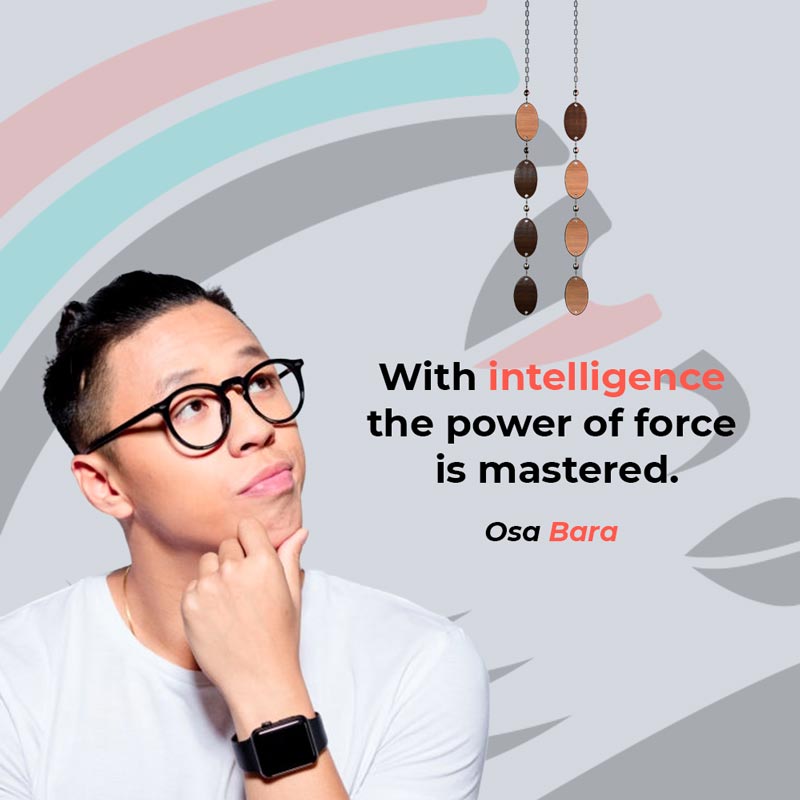
- The one who was born to the head if he stays in the tail is bad.
- The sacrifice will be rewarded.
The saying "Sacrifice will be rewarded" reminds us of the importance of perseverance and dedication. Sacrificing yourself in the present for long-term goals is a practice that, although arduous, culminates in benefits and successes. It is a testament that patience and continuous effort bring well-deserved rewards.
Ifa code of ethics:
- The Awó must take care of his physical appearance and posture.
Meaning of the Odu Iroso Umbo (4-8)
The Odu Iroso Umbo highlights the primacy of personal relationships over monetary or business transactions, emphasizing that emotions must be the priority even when business prospers.
This Odu is known for its specific rituals, such as the assembly of an Ishé Osanyin using an alligator fang, which reflects the strength and protection necessary in the spiritual life of the followers of this sign.
During the sacrifices, when an Awó from Iroso Umbo offers a goat to Orúnmila, the ashes are prepared with plenty of spice before being consumed, symbolizing the intensity and purification through fire.
It is important to mention that in this Odu, Eshu Ni was responsible for performing the okpele for Orúnmila, marking a significant act of divine communication.
To avoid the interference of Eshu, an Ebó is made that includes a rooster, two white hens, hot pepper and a knife, dedicating the rooster to Egun and presenting the Ebó before Eshu according to the days indicated by Orúnmila.
Cleansing rituals are essential, using a new clay pot, various foods, red cloth, and herbs such as Canutillo and Mouse Pinecone, along with sheep's milk, to reinforce protection and purification.
For physical protection, it is recommended to prepare an Inshé in an alligator fang, and make sure that Oshun never lacks small knobs of bee honey, strengthening the connection with this Orisha.
This Odu also speaks of Abiku and emphasizes the need to perform Ebó to combat enemies and overcome obstacles, using elements such as a black chicken and a shirt of the same color to repel bad energies.
The person governed by this Ifá (Ìrosùn Ogbè) must hang a Cockroach behind the door and use Cockroach grass in ritual baths, symbolizing continuous cleansing and protection against negative influences.
Recommendations:
- Celebrate masses for your ancestors (Egun): Honor the dead with offerings of flowers and food to maintain their benevolence and protection.
- Keep health under surveillance: Pay special attention to diseases such as diabetes, throat problems and impotence. Take preventive measures and follow recommended medical treatments.
- Listen and value the advice: Pay attention to the suggestions and advice you receive, especially from your partner, and reflect on them.
- Make offerings to Orúnmila: Pray to Orúnmila with two open coconuts placed on a plate and accompanied by two candles to seek his guidance and support.
- Discover Eshu's needs: Investigate and attend to what Eshu demands of you to maintain his favor and protection.
- Receive the Orishas Inle and Abata: Strengthen your spirituality and protection by receiving these Orishas, following the appropriate rituals.
- Perform a Paraldo to cleanse bad energies: This ritual is crucial to dispel the negative influences of a "dark dead" that may be affecting you.
Prohibitions:
- Avoid fats in your meals: Reduce consumption of fatty foods to improve your health and prevent medical complications.
- Do not enter uninhabited houses: The children of this Odu must avoid entering empty spaces so as not to attract negative energies or lonely spirits.
- Refrain from wearing black clothing: Do not wear black clothes, nor hang them in your room, nor place them on the table, to avoid attracting bad energies and respect the restrictions of this Odu.
- Avoid appropriating other people's belongings: Do not take anything that belongs to a brother by religion or blood to avoid embarrassing situations and conflicts.
Ifa says in the odu Iroso Umbo:
According to Ifá, the woman influenced by this Odu tends to be extroverted and enjoy celebrations and drinks. However, she must proceed with caution regarding men, as she could face severe dangers. It is crucial that she abandons alcohol consumption and licentious behavior to prevent illness and conflict, as Eshu could provoke her into confrontations with her partner or lover. Giving up negative and dishonest practices is essential, as her fortune is intrinsically linked to her husband.
For both genders, jealousy can lead to marital disputes. It is advisable to remain patient and seek serenity to avoid domestic tragedies.
In the case of children, identified as Abiku, it is recommended to feed them spicy foods. In specific situations, a goat and two black hens must be offered to Orúnmila; These foods are prepared with spicy spices before being offered, along with yams, to the Orisha.
This Odu also warns of health problems that may include genital, gastric, abdominal disorders and sexual impotence.
Iroso Umbo establishes that belongings of the deceased or clothing of Egun should not be used, reserving exclusive use for the Saints. If one of the individual's parents has passed away, it is important to hold masses and offer food to honor their memory and receive blessings.
Advice from the Iroso Ogbe sign:
You must have three small houses: a white one that houses an ESHU stone, another red one decorated with gold, silver and nickel, and a third black one where Ogun is kept along with a machete. According to this Odu, Oggun assures that no war will break out for Iroso Umbo and claims to be his loyal servant.
When an Awó performs an Awofakan (Orula's Hand) and this Ifá emerges, it is crucial to support the godson to initiate Ifá and reimburse him for the money paid for the right to Awofakan. If the Awó has already used that money, he must create a doll with his clothes impregnated with sweat, clean himself with it and discard it along with the person's Ebó as part of the cleansing ritual.
In situations where this Odu appears as Ayeo (Osobo) in divination, the person should be warned that although he faces many enemies, he can overcome them if he makes the necessary sacrifices. If the result is Ire, it means that he will receive support from others in his projects or in any activity he plans to undertake.
You can read: All about Oddun Iroso Meyi
Prayer of the Odu Iroso Umbo:
Iroso Umbo Skeregun sheré komashe kotushe areshenle adifafun Orúnmila uncle fa mare akofá Elebo Aikodie Elebo.
Ebboses (Works) of the Ifá sign Iroso Umbo:
Ebó de Iroso Ogbe (4-8):
This ritual includes a rooster, two yellow chickens, an OSHUN necklace, a doll, five yellow scarves, the person's clothing, and five OSHUN herbs, in addition to yam. Handkerchiefs should be tied around the individual's waist. The entire Ebó is placed in a gourd, including the chickens, and taken to the cemetery as an offering.
Work to alienate a person:
Use marigold seed, Chinese pepper and three white onions. Place these elements in front of Ogún with a lit candle, requesting that the person move away.
Inshé Osanyin of the sign Iroso Ogbe:
It includes the bone and feathers of the Arriero, the hooves of the Eagle, the Carpenter, the Lion, and strong sticks (of which one must investigate which ones are appropriate), ero, obi, kolá, obi motiwao, and osun naború.
Iroso Umbo's Secret to Master:
Combine Atiponlá roots, tranquil balm, cascarilla, hair of the person concerned, white and red thread, and yam. Prepare four white papers with the name of the person to be mastered and place them in a bag with the mentioned ingredients. Prepare a fifth paper with a mixture of all the elements except the hair, and if Orúnmila authorizes it, insert it into the yam. The first four papers must be rolled individually. Place everything on a white plate in front of Obatalá.
You can read: History of Elegua, Who is it, Offerings and more.
Patakies (stories) of the Iroso Umbo sign:
The false accusation against Orunmila
In one town, Orúnmila was accused of being a false fortune teller. To test him, the villagers set a trap for him using three booths. In the first they placed gold, in the second clothes and diamonds, and in the last Ogún waited with a machete, ready to kill him if he failed in his divination. Trusting in his wisdom, Orúnmila arrived at the place with his Apetebi, carrying a basket with coconuts, since upon consulting before leaving it, his Ifá told him that he needed to do a head prayer.
Upon arrival, Orúnmila asked permission to pray for his head, and after throwing the coconuts, Iroso Umbo came out. Interpreting this sign, she stated: "My angel does not want me to die." Challenged by his enemies to reveal the contents of the booths, Orúnmila correctly declared: "In the white booth there is gold, in the red one there are clothes and diamonds, and in the black one is Ogún with his machete waiting to kill me." It was not necessary to open the black hut, because upon hearing Orúnmila's words, Ogún came out, threw his machete to the ground, and prostrated himself before Orúnmila, granting him his respect and promising: "As long as the world is a world, there will be no wars for you, because I, Ogún, will protect you and will always be your faithful servant.
Explanation: The story shows the importance of relying on spiritual knowledge in difficult times. Orúnmila, falsely accused, uses his wisdom to reveal the truth and turn an enemy into a protector. Iroso Ogbe stresses that integrity and truth overcome adversity, ensuring that the righteous will always find protection and respect.
Orúnmila consecrates Elegua in Ifá
Elegua and Orúnmila were in dispute. Elegua claimed to be a fortune teller and decided to demonstrate it by reading the okpele from left to right, contrary to current practice. By making Osode to Orúnmila, he warned him about an upcoming dispute. Orúnmila, without responding, observed how Elegua manipulated the okpele and commented that he was more skilled in divination, explaining that the Ifá okpele is read from right to left, assigning the right to Ifá and the left to Elegua.
Then, Orúnmila called Elegua to demonstrate his superiority in divination. During the Osode, she revealed to Elegua that she must temper his arrogance and make offerings and sacrifices due to an impending conflict. Elegua, offended and feeling robbed of his secrets, fled crying.
Orúnmila prepared an Ebó and placed it on the road, capturing Elegua with a trap. Brought before Olofin, it was decided that Elegua would live in Orúnmila's house, initially in an unpleasant place. Over time, Elegua, tired of his confinement and wanting to share Orúnmila's riches, asked to be at the entrance of the house and be recognized as Babalawo. Orúnmila initially refused, but after an impulsive incident by Elegua, he agreed and initiated him into Ifá.
Days later, Elegua, already at the door, was ignored by Inle, who challenged his divination skills. Elegua, demonstrating his new knowledge, revealed secrets of Inle that only his family deities knew. Impressed, Inle requested to be initiated by Elegua, who he accepted in exchange for generous offerings.
Explanation: The story illustrates that true knowledge and skill are eventually recognized and respected, regardless of initial challenges. Orúnmila, through patience and cunning, demonstrates that wisdom and truth prevail over arrogance and impulsiveness.
Iroso Umbo (Irosun Agbe) Traditional Ifa
It was guessed for Olobaghun and Idanigbo.
UROKE AMERUN JINGINI. ADIFAFUN OLOBAGHUN ABUFUN IDANIGBO.
Uroke, the fortune teller, consulted for the Turtle and Idanigbo, who were competing for the chieftaincy title left by their father. Both were advised to make sacrifices; However, the Turtle showed no interest in doing it. Idanigbo was advised to offer a goat and yam powder (elo or obobo), scattering it from his home to the coronation site, which he obediently did.
The Ifá priests prepared the yam powder with Iyerosun of the Odu and gave it to him to spread on the path of the installation. The next day, while both brothers were heading to the event, the Turtle questioned Idanigbo about his action of spreading the dust. Idanigbo, sure of his purpose, simply commented that he knew what he was doing.
Finally, unable to resist the lure of the yam, the Turtle stopped to eat it. As he feasted, the Turtle sang, inadvertently bestowing the title on Idanigbo through his song:
Hey hey re o Idanigbo,
Idanigbo ma de wo danu,
Hey hey re o Idanigbo.
Idanigbo arrived at the coronation site without the Turtle, who had been delayed. Hence, Idanigbo was awarded the title.
In divination, if this sign appears as Ayeo (Osobo), the person will be advised to abandon the competition for the desired position. If it is Uree (I will go), it will be recommended to make sacrifice to ensure success. In competitions for titles or leadership positions, the proper sacrifice includes a ram, a tortoise, and yam powder.
ÌROSÙN OGBE
Òde táa ní or mó hugbégi
Òdé hugégi
A dífá fún Gúnnugún you are like Olórèé
Tètè táa ní or mó hù láàtàn
Tètè hù laàtàn
A dífá fun Kólìkólì omo Olórèé
Ohun awo nibà
Ohun Awo làse
A dífá fún Èlulùú you are like Olórèé Àgbon
Omo Olóréé ni àwon métèèta
Olóréé wá dàgbà dàgbà
Ó re ibi, you àgbàá rè
Àwon omo è bá ń duyèe babaa won
Gúnnúgún tíí se àgbà àwon omo Olórèé
Wón ní ó fi agbádá orùun rè rubo
Igún fi rubo
Kólìkólì náà
Wón ní kí òun náà ó fi aso è rubo
Kò fi rbo
Èlulùú omo Olóréé
Wón ní kó fi agbádá orùn è rubo
Òun náà kò, kò fi rubo
Èlulùú yes yááyì
ó réwà
Or yes day
Òun níí s omo ìkéyìín won
Aso orùun rè pupa yòò
Tó sì wùùyàn
Èlulùú ti gbékè le pé òun daa
Kólìkólì náà mo òròó so
Still yes it was said
Ìgbà ó to gégé tí ón dá
Won mu Igun
Pé kí àwon e dédù oyè
Àwon èeyán bá kò
Wón lawon or faith Igún
Wón léèyàn dìèdìè ni
kò jáfáfá
Even if you rub
Wón bá mú Kólìkólì
Won and dédù
Kólìkólì sì dáko pupò
Àwon èèyàn si ń wó ó pé
Bí àwon ò bá mú Igún tíí se àgbà
Kólìkólì náà ló kàn
Láìmò fun Kólìkólì
Àwon kan ti lòó fi nňkan Sínú agbè tíí fíí mumi lóko
Bí Kólìkólì tí gbé agbè sénu
Kò bá mo òròó so geere mó
Ní bá ń kílòlò
Wón bá ní "é è wa jé á mú Èlulùú"
Igún níń se dìèdìè
Kólìkólì làwon tún ń bi léèrè òrò ni ń wí kótokòto yìí
E jé á mú Èlulùú
Ni won bá mú Èlulùú
Àwon Ìkónkósó tìdí bògbé or tanjú ranran solóko
Àwon ló dífá fun Ìlè dèèrè tíí solorí eye láàrin ìgbé
Àwon náà ni wón to dífá fún Èlulùú
Wón niwo Èlulùú
"O ò gbodò se òkánjùwà"
"Mó se ojú kòkòrò o"
Wón bá fi Èlulùú dédù oyè
Won bá gbé bàbá gori esin
Wón bá ń jóó lo
Ńgbà ti on rìn dìè
Èlulùú bá rí ìrè ńnú igbó
Kò mo pé okùn ń be ńbè
Kó sì fé kí “enìkan or bá òun je ńbè
Ó ni e soun kalè
Wón ní bàbá "enìkan Ì Í sòó kalè lórí esin báhun"
"Àgbàlagbà Ì Í sòó kalè lórí esin"
ó ní rárá o
"This is so òun kalè ni"
"Òun or his ni"
"Óun ó tò ni"
Wón bá so Èlulùú kalè
Geere to it
Sàkà ló lòó saca ìrè je
àfi pákó
Okùn mú Èlulùú lórùn
Ní bá ń jà
Ní ń pé “Ìlè dèèrè se ńmi”
"Ìlè dèèrè se ńmi"
Bí ti ń jà
Ló bá da agbádá tí ón ni ó fi rubo borí è
Wón bá wá Bàbá tú lòó gbonsè
Nigbàa won wo inú igbo
Wón ní áà!
"E è wo eni àwon fi joyè"!
Ìrè ni jagún rí latorí esin
Okùn ti mú bàbá
Wón bá padà wa ilé
À tíí se báyìí
Wón ní kò yes kinní kan mó
Igún náà láá fi joyè Olóréé
Wón ni béè làwon Babaláwo wí
Òde táa ní or mó hugbégi
Òdé hugégi
A dífá fún Gúnnugún you are like Olórèé
Tètè táa ní or mó hù láàtàn
Tètè hù laàtàn
A dífá fun Kólìkólì omo Olórèé
Ohun awo nibà
Ohun Awo làse
A dífá fún Èlulùú you are like Olórèé Àgbon
Wón ní gbogboo wón ó rbo
Igún nikàn ló gbébo ńbè tú rubo
Ìkónkósó tìdí bògbé or tanjú ranran solóko
Àwon ló dífá fun Ìlè dèèrè tíí solorí eye láàrin Ìgbé
Ohùn Awo mò nibà
Ohùn Awo mò lase
To mú Igún je Olórèé Àgbon
Ohun Awo mò nibà
Ohùn Awo mò lase
Ì wonnà Ì wonpápá
To mú Igún je Olórèé
Ì wonnà Ì wonpápá
A wáá mú Igún je Olóréé
Ì wonnà Ì wonpápá
A wáá mú Igún je Olórèé ò
Ayé yẹni.
In Iroso Umbo, Ifá advises this person not to be greedy. A good fortune is coming to your surroundings; Anyone who deserves this good fortune will be allowed to go with it.
The open space or great savannah, we abhor is when the grass grows
Yet the grass grew
He was the one who made divination for Gúnnugún the son of Olórèé
The Tètè vegetable that we hate when it grows in a garbage dump
Yet it grew or developed in a garbage dump
He was the one who made divination for Kólìkólì the son of Olórèé
The voice of a priest is a sign of reverence
The voice of the priest is the command or command
He was the one who made divination for Èlulùú the son of Olórèé Àgbon
The three of them were sons of Olórèé
Olórèé was already old
And went to the place where the old men go
The children that he left behind began to fight for the emptiness that their father had left due to his death.
Gúnnugún is the eldest son of Olórèé
He was advised to make sacrifice with his Agbádá clothing
He did it
The Kólìkólì bird, also the son of Olórèé
He was advised to sacrifice his clothes
He refused to do it
The bird Èlulùú, also son of Olórèé
He was advised to offer sacrifice with his Agbádá clothing
He also refused to do it
However the bird Èlulùú is very charming
He was beautiful
And striking
He was the youngest brother in the family
His red clothes were brightly colored
And highly fascinating
The Èlulùú bird relies on its physical attributes
The Kólìkólì bird was a good speaker
But the Vulture was very rough
When the appointed time came
They chose the Vulture
And they appointed him to ascend to the throne of his late father
They said they didn't want the Vulture
They said in chorus "He is very slow and rough"
"Besides, he's not smart."
But Gúnnugún offered the prescribed sacrifice
They chose the bird Kólìkólì instead
To ascend to the throne of his father
At that time Kólìkólì was a great farmer
And the kingmakers were reasoning that
If they did not install Gúnnugún, the major
The next is the Kólìkólì bird
Without Kólìkólì knowing
Someone had dropped a medicine into a gourd that he used to drink water on his farm.
As soon as the bird Kólìkólì raised the pumpkin to its mouth
He found it difficult to speak normally after that.
He started to stutter
The elders reasoned saying "Why don't we choose the bird Èlulùú"
"Since Gúnnugún is rough"
"Kólìkólì is a stutterer"
"Let us install Èlulùú"
And that's how they chose Èlulùú
But the priests Ìkónkósó tìdí bògbé or tanjú ranran solóko
They were the ones who consulted for the snare snare, the leader of all the forest birds
They also consulted Èlulùú
They caught his attention by saying "You Èlulùú"
"Don't be greedy"
"Nor greedy"
Then the elders installed Èlulùú as their King
They saddled a horse for him to ride
And began to dance around the city
As you enter a corner walking away from the palace
Èlulùú saw a cricket in the bush
He didn't know it was bait
He however did not want to share it with anyone
So he quickly yelled "Let me down"
The kingmakers told him "A crowned King cannot or should get off the back of a horse like that."
"The elders tried to prevent him from getting off at all costs"
Èlulùú said angrily "No way"
"Just let me go down"
"I'll do it myself"
"I have a desire to defecate"
They allowed him to come down due to the pressure he had put on them
And from there he immediately moved to the jungle
The screech of the cricket was the hook
Immediately he stung him
The rope caught him around the neck
He began to fight to get away
He said "Take me away, this trap"
"Take it from me, I beg you"
And kept fighting
He covered himself with his own Agbádá which he had been advised to sacrifice from the beginning
The people, however, were restless due to the delay of the King who had gone to defecate
They organized a search and left for the jungle
Seeing him with the rope around his neck, they began to laugh
They said "Look at the person we chose as King"
"He has been caught by a trap"
So they decided to go home annoyed
And they said "What will we do now?"
The people said there was no alternative
It is to Gúnnugún that we must ascend to the throne of Olórèé
They said in chorus "This happened according to the prediction of the Babaláwos"
The open space or great savannah, we abhor is when the grass grows
Yet the grass grew
They guessed for Gúnnugún the son of Olórèé
The Tètè vegetable that we hate when it grows in a garbage dump
Yet it grew or developed in a garbage dump
He guessed for Kólìkólì the son of Olórèé
The voice of a priest is a sign of reverence
The voice of the priest is the command or command
He guessed for Èlulùú the son of Olórèé Àgbon
All of them were advised to offer sacrifice
It was only Gúnnugún who made the sacrifice
The priests Ìkónkósó tìdí bògbé or tanjú ranran solóko
They were the ones who consulted for the Trap Lasso, the leader of all the birds of the forest
The voice of a priest must be revered
The voice of a priest is the command
Ì wonnà Ì wonpápá
We have chosen Gúnnugún as the next Olórèé
Ì wonnà Ì wonpápá
We have chosen Gúnnugún as the next Olórèé
Ì wonnà Ì wonpápá
Now that we have installed Gúnnugún as the Olórèé
Life will please us.
Eshu from Iroso Umbo: Alayiki
Eshu Alayiki is known for his voracity, being characterized as the most gluttonous among the Eshus. Furthermore, it symbolizes the unexpected and betrayal, like that time he betrayed his friend Osun. This Eshu is also described as a mischievous child, a lover of parties, abundant food and alcohol.
To consecrate Eshu Alayiki, three black river stones are required. One jicotea and three jio-jio are offered in sacrifice to these stones, later incorporating them into a mass.
Eshu Alayiki Upload:
- Organic elements: head, heart and legs of jicotea, elements of the three jio-jio sacrificed.
- Seeds and fruits: eru, obi, kolá, orogbo.
- Terrestrial elements: earth from a crab cave, from a hill, from the four corners.
- Other elements: fish, corojo butter, brandy, dry wine, toasted corn.
- Symbolic objects: a penny, an olive seed, gold, silver.
- Marine elements: three corals.
- Food: three buns, three pieces of bread.
- Magical herbs: prodigious, fine herb, atiponla, canutillo, pica pica, get up, garro, palm root, yaya, Jocuma, ateje, amansa guapo, victor, change voice, open the way, palo jicotea.
Each stone is decorated with three snails and encapsulated in cement, adorning it with a total of 83 snails, thus creating a symbolic link with the spiritual and natural world of Eshu.







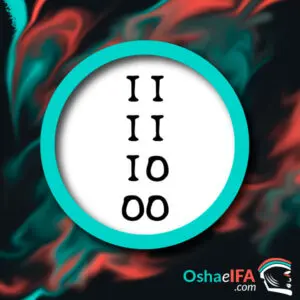

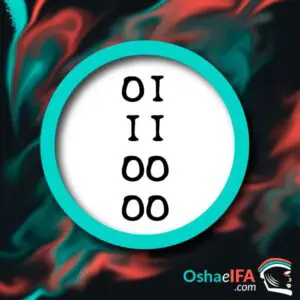


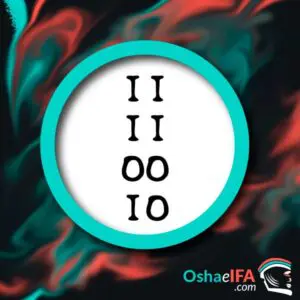
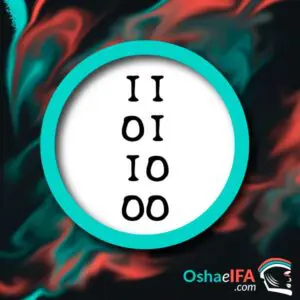
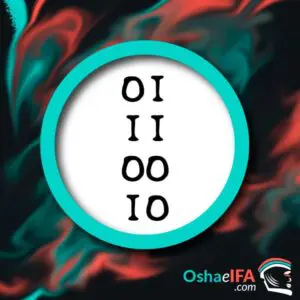
Pingback: Letter of the Year in Cuba: Delving into the paths of Ifá - La Joven Cuba